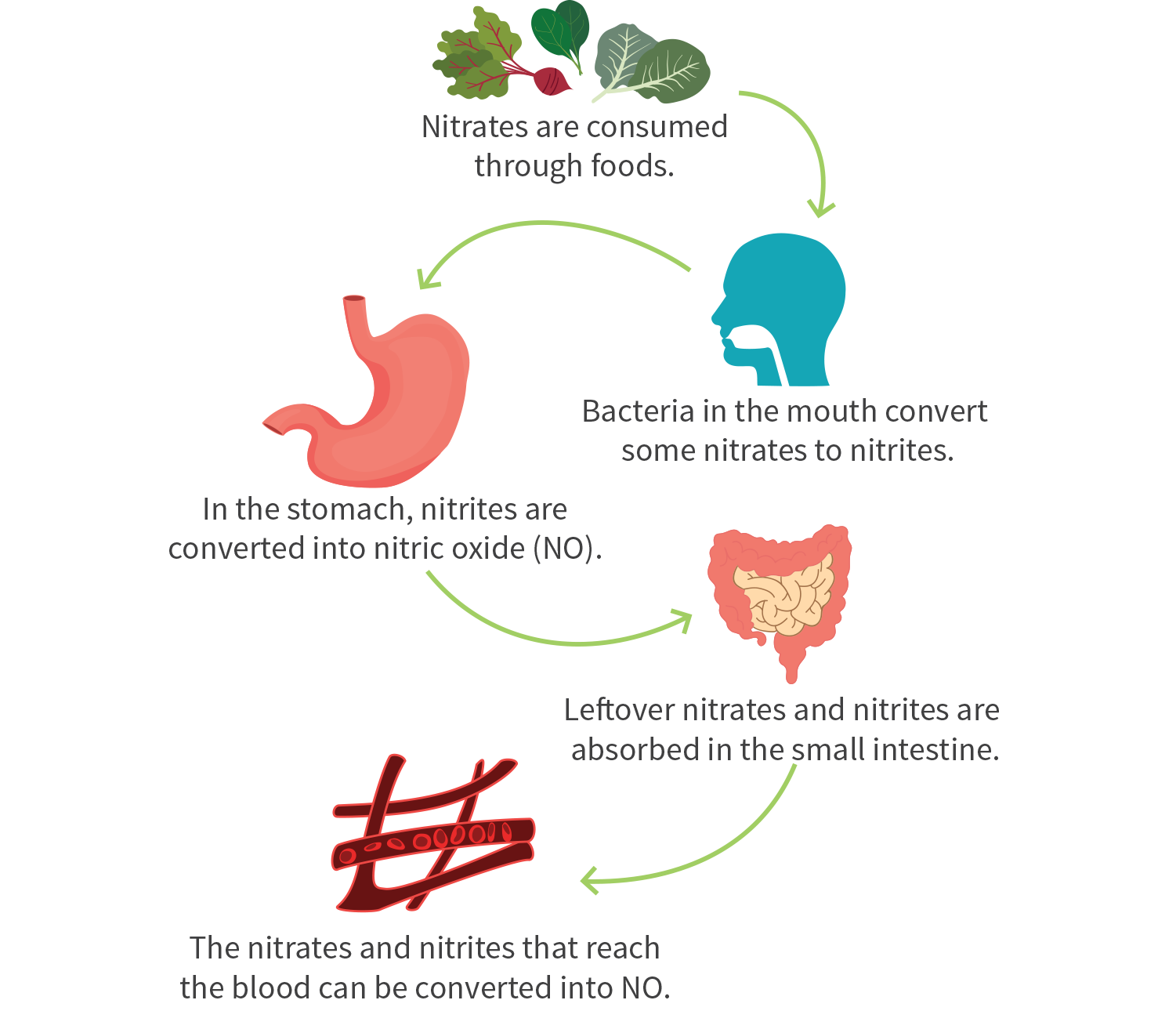When nitrate (NO3-) is ingested, bacteria in the mouth convert most of it to nitrite (NO2-).[1][2][3] The remaining nitrate is absorbed in the intestine and enters the blood; however, nitrate circulating in the blood can be taken up by the salivary glands to be reduced to nitrite.[1][2][3] This means that nitrate taken in a capsule initially bypasses the oral bacteria, but it is eventually taken up by the salivary glands to be reduced to nitrite.
Interestingly, the human body lacks the biological enzymes necessary to convert nitrate to nitrite, so humans rely on bacteria in the mouth to complete this conversion.[1][2][3] This step is vital because nitrite is then metabolized in the stomach to produce nitric oxide,[1][2][3] a molecule that is a major regulator of vascular function.[1][2][3] The subsequent rise in plasma nitric oxide increases vasodilation and blood flow, which helps increase the delivery of oxygen and nutrients to tissues.[4][5] Therefore, the benefits of supplementation with nitrate are likely caused by the subsequent increase in nitric oxide and its ensuing effect on vascular function.[1][3] Since nitric oxide also directly affects mitochondrial respiration, glucose uptake, and contractile function in skeletal muscle,[6][3] the effects of supplementation with nitrate on exercise performance are also likely driven by the rise in nitric oxide.



